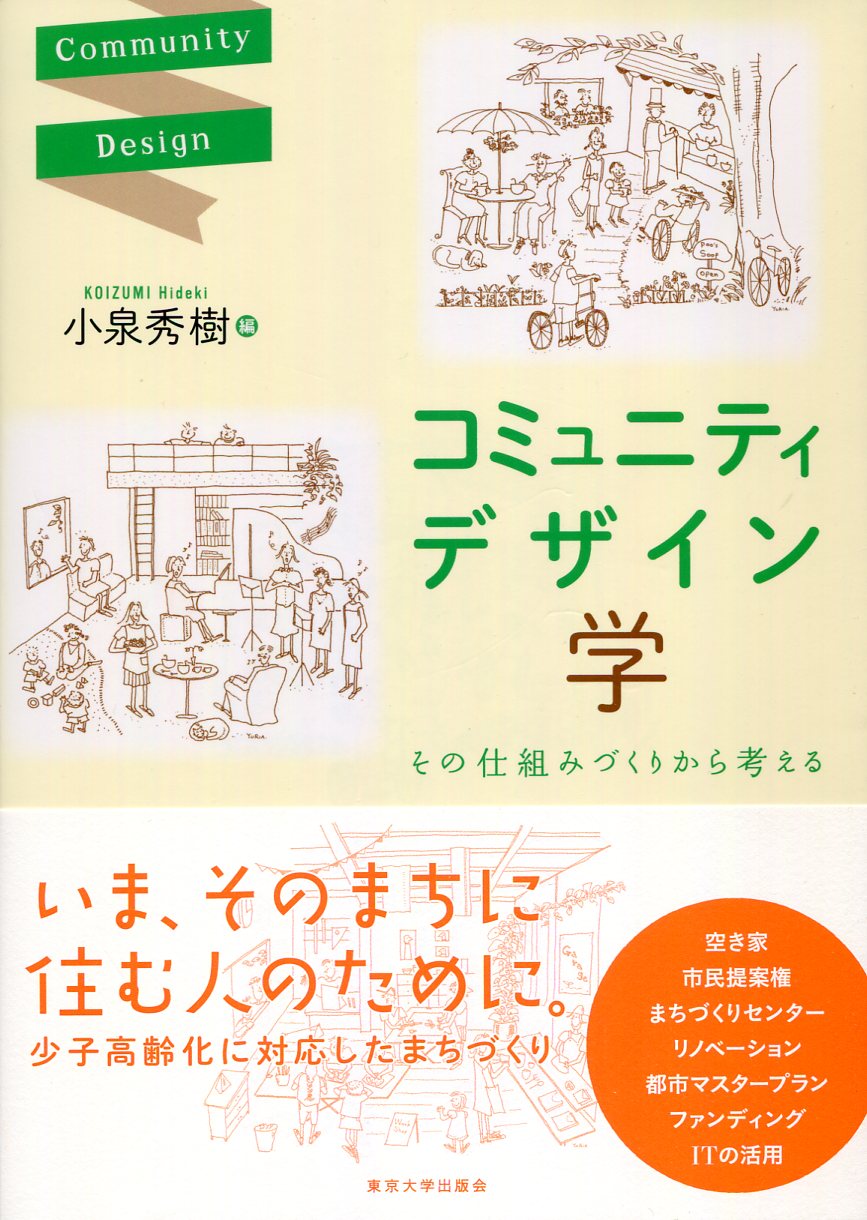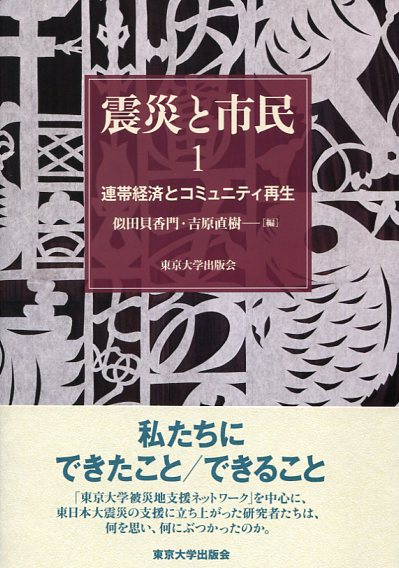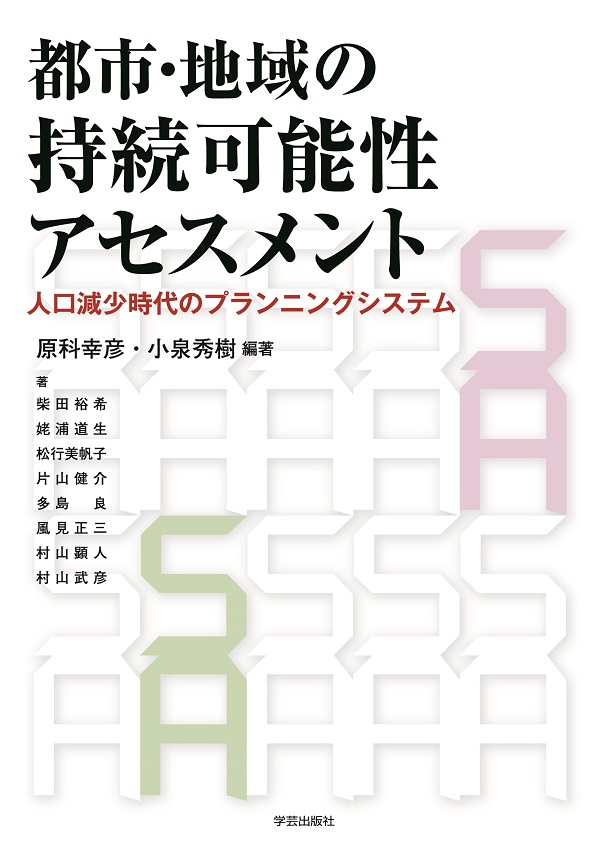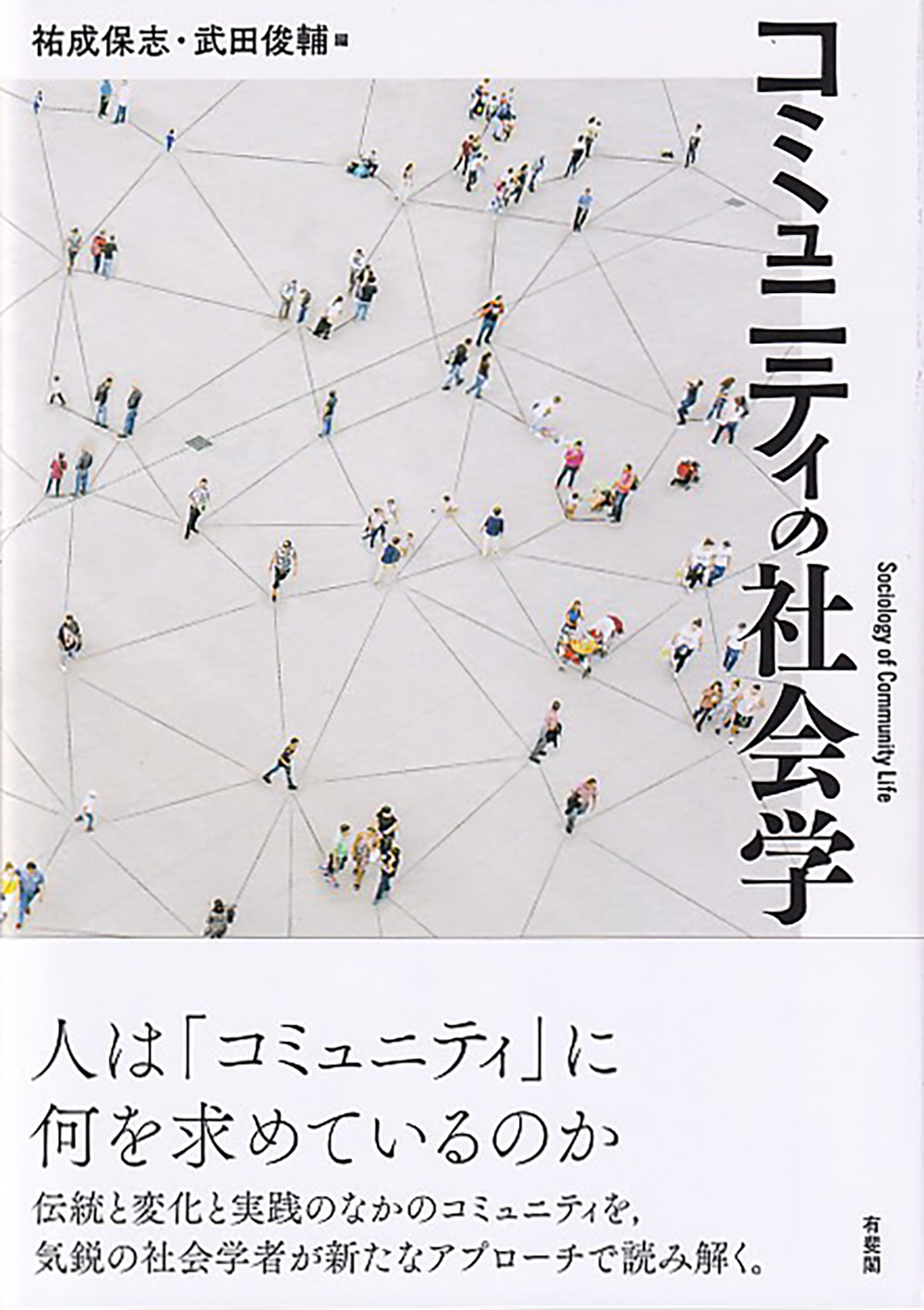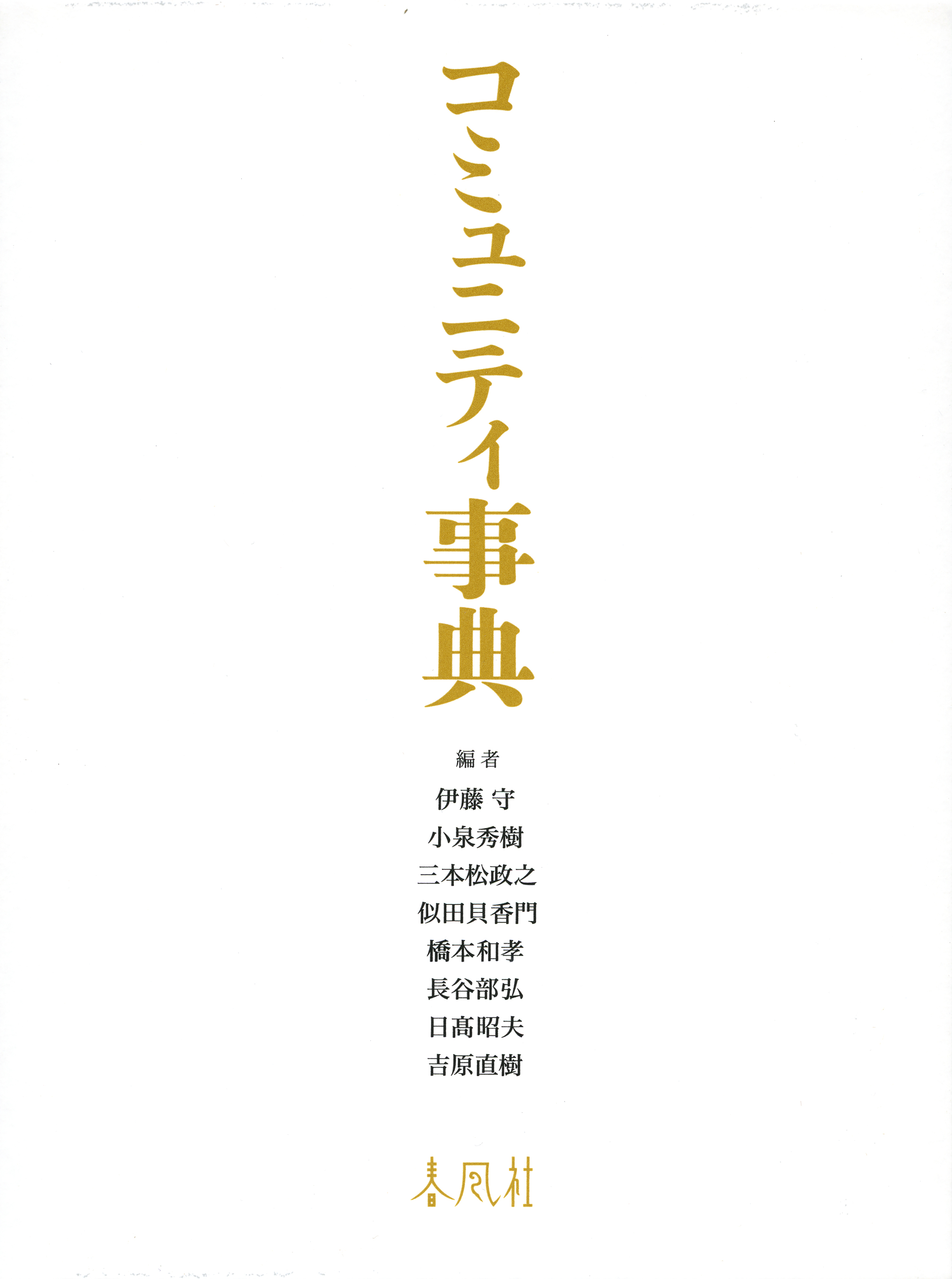
Title
Community Jiten (Community Encyclopedia)
Size
1168 pages, A5 format, hardcover
Language
Japanese
Released
July, 2017
ISBN
9784861105388
Published by
Shumpusha Publishing
Book Info
See Book Availability at Library
Japanese Page
The roles of not only nations but also of people and individuals are changing amid the progress of globalization. People are put in a competitive situation in today’s urban cities and often come across scenes of “who wins and who loses” every day.
When the “safety net” comes off in the event of a disaster, will we be exposed as bare individuals, or will we come up with a way to help each other collaboratively? Depending on this, the path to reconstruction changes significantly. Also, it is difficult to build our surrounding environment by ourselves, for instance, the childrearing environment is now embedded in the economic system. Additionally, urban development is often decided not by the decisions of the local people and government but through global investments or by the decisions of companies with large capital. The atmosphere in which we cannot decide what to do with “our livelihood” is expanding and deepening.
However, we realize that “it is impossible to continue winning” and “a human as a living being cannot survive just by being a bare individual” through experiences such as falling sick, child-bearing, or feeling the presence of death.
Communities have been made vulnerable and are neglected in urban cities. Urban cities are a space where people engage in economic activities while acknowledging individualism. “Privatization,” “individualization,” and “individualism” have spread, creating a situation where a “place” sought after by humans as living beings cannot be formed well. Moreover, questions are now being raised over how urban cities and society should work now that science and advanced technology such as ICT and AI have become widespread. The spread of ICT has led to an expansion of platform-type businesses, which makes it easy for us to secure various resources and support each other as peers. On the other hand, mechanisms such as autonomous driving are facilitating “individualization” further. We are not certain which way things will go.
In urban societies where globalization is progressing and advanced technology such as ICT and AI is spreading rapidly, it is essential to rebuild communities as an intermediate space that includes people in order for us to live life as human beings.
Even though the existence of communities is questioned in today’s era, it is very meaningful that we now have an “encyclopedia” that casts a spotlight on community from not only the retrospective views but also perspectives of various academic fields, including contemporary issues. Community Encyclopedia is a book that is needed because in today’s era, it is extremely difficult to describe how communities should work or what a model community should be like.
This book includes several topics for not only “learning” about community but also implementing revitalization. It is an “encyclopedia” very useful in the context of today’s diversified community.
Note: This work was compiled by reconstructing the author’s discourse in “Community Encyclopedia: Three-way discussion by commenters Naoki Yoshihara, Kamon Nitagai and Hideki Koizumi” published by Tosho Shimubun, with a number of texts added.
(Written by KOIZUMI Hideki, Professor, School of Engineering / 2020)



 Find a book
Find a book


